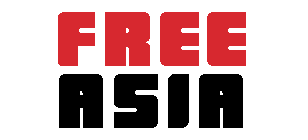(Vice) When Christian Petersen-Clausen visited North Korea last year, he was struck by how few people had cellphones.

Photo Credit: Japan Times
In a world where it seems virtually everyone is now connected by mobile technology, the Hermit Kingdom lived up to its name. But when the China-based photographer returned to Pyongyang earlier this year, phones were suddenly everywhere.

North Korean Women Arrive at the East Pyongyang Theater for a Night of First-World Revelry and Indulgence. Photo Credit: BBC
“It was literally everyone,” he recalled. “Sometimes I saw people with two phones.”
A North Korean man using an Android smartphone inside a Pyongyang metro station.
Cellphones are still somewhat of a rarity in North Korea — there are only 2.5 million mobile subscribers in a country of 24 million — but increased phone ownership is just one indication of the personal wealth being accumulated by a segment of the country’s society.
My #Pyongyang brand #NorthKorean cell phone. Just a basic phone, no internet #latergram http://t.co/L5uQhmdbDR pic.twitter.com/LqX17OWaU9
— Anna Fifield (@annafifield) September 2, 2014
Online shopping, North Korea-style: Pyongyang unveils mobile-friendly retail website http://t.co/sQ931rDBj6 pic.twitter.com/5CLI3dVlep
— George Chen (@george_chen) May 8, 2015
Petersen-Clausen’s recent experience in North Korea, part of a 10-day excursion that the site NK News turned into a 2017 wall calendar, squares with what experts and defectors have been saying for years:
http://https://www.youtube.com/watch?v=RLQUWeutjVI
There’s a growing class of relatively well-off citizens who aren’t directly involved with the country’s all-powerful ruling party. In Korean, they are called donju, which translates to “masters of money.”
These are the people who frequent “Pyonghattan,” the nickname coined by foreigners for a wealthy enclave of the capital that is home to expensive department stores, restaurants, and a 24-hour coffee shop, the type of hangout that is common elsewhere but still trendy and new in North Korea.

Changjon Street Pyongyang – A View of North Korea New Town, a newly developed apartment complex in the city. Units are priced at $100k each. Photo Credit: BusinessKorea
The country’s nouveau riche evolved out of a 2002 government decree that opened the door for citizens to trade goods and operate businesses, according to Michael Madden, a visiting scholar at the US-Korea Institute at Johns Hopkins School of Advanced International Studies.

Luxury cars – Another symbol of the rising influence of a moneyed elite in North Korea. Photo Credit: NK-News
Today, Madden said, the donju have a sort of symbiotic relationship with Kim Jong-un’s regime, which allows them to exist in exchange for bribes or “informal taxes.”
Photo: Shopping in the DPRK / At the Mirae Shop in Pyongyang
Photo by Ri Song Ik pic.twitter.com/ViKLJ5fqUt— Explore DPRK (@Explore_DPRK) September 11, 2016
A North Korean bride and groom pose for photos with a Dalmatian at the Pyongyang Zoo.
“They’re like Russian oligarchs,” Madden said. “Some of them are self-made, but the donju are very large participants in official corruption in North Korea. It’s corruption from our perspective, but it’s how they do business there. You can’t do any kind of business without bribing the authorities, through goods or money, it doesn’t matter.”
North Korea building large shopping complex in Pyongyang https://t.co/FTHSrKPMqi pic.twitter.com/NF4I9RbeTj
— NK NEWS (@nknewsorg) August 11, 2016
Madden said these entrepreneurs capitalized on the government’s decision to privatize some state-owned industries, and they’re now reportedly involved in everything from transportation and real estate to sub-contracting for state construction projects.
And despite international sanctions designed to prevent North Korea from importing luxury goods, Petersen-Clausen said there appeared to be no shortage of expensive items for the donju to splurge on. He recalled spotting several brand new Audi A6 cars on the streets, and finding flat-screen TVs and designer handbags in Pyongyang’s department stores.
VIDEO: A new Pyongyang shopping mall: Consumerism penetrates North Korea.
Though the country’s rich may be getting richer, the photographer said he didn’t have to go far outside of Pyongyang to find the crushing poverty that most North Koreans still endure. He recalled a farm he saw on the way from the capital to the coastal city of Wonsan.
“It was harvest season,” he said. “I just left China, where everybody is using same harvesting machines that you would see in Iowa. You go to North Korea and it’s 30 people standing in a row passing corn from one to the other. It’s backbreaking work.”

A North Korean man speak on his cell phone at the North Korean-China border. Smart phones and cell phones are increasingly becoming common, despite the restricted access that most users face due to state controls. Photo Credit: UPI

What was once this….(Photo Credit: Daily Mail)

…is now this (Photo Credit: UPI)

…and this (upscale pizza place in Pyongyang). Photo Credit: Daily Mail

An indoor water park caters to North Korea’s elites. (Photo Credit: Korea Joongang Daily)
Read the original post here








